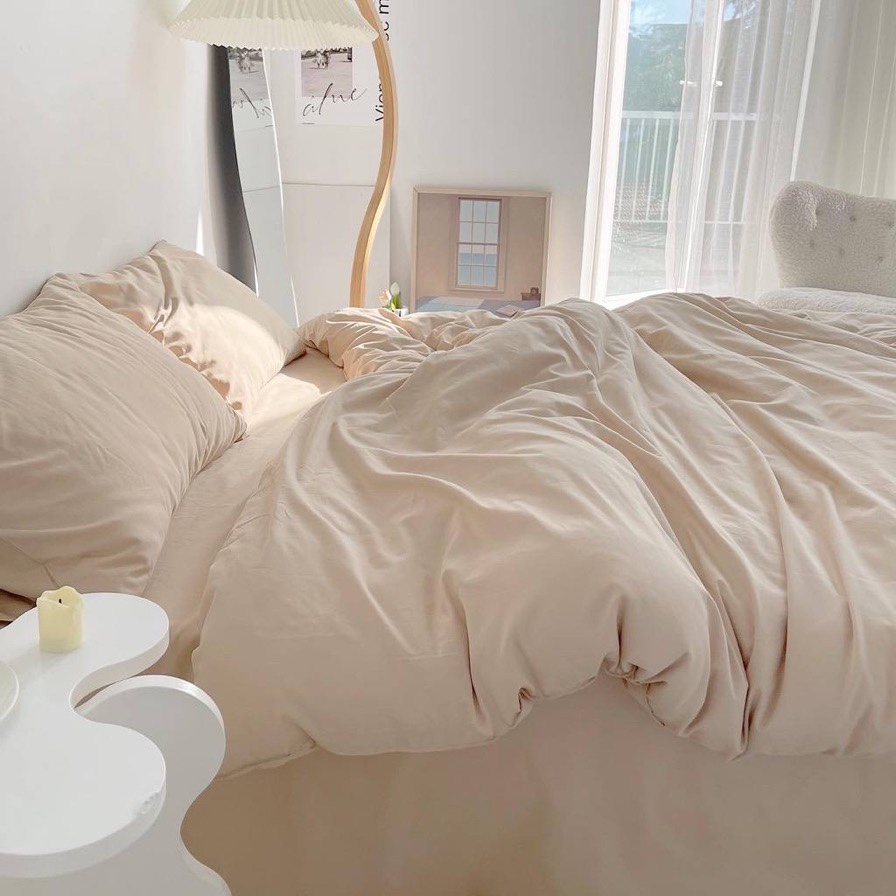Six Ways to Sleep Better

Dream Hotspots Across The UK
A new data study by The Mobility Furniture Company.
The team at the Mobility Furniture Company have conducted a new data study to investigate what the UK has dreamt about most over the past year.
The study has revealed the most prominent dream-related searches across UK cities and countries, per capita 1000 with populations over 300,000. Such as the top 20 most common dreams, which locations have the most nightmares and which locations have tried to influence what they dream about the most.
Explore the rankings in our infographic to find out what your city has been dreaming about.
Key Findings
Teeth falling out was the most common dream search across all UK cities and countries in 2021. This dream often indicates a loss of control in real life and could be a universal impact of the pandemic. Dream searches have varied greatly between countries and cities within the UK, as our findings demonstrate.
Most Common Dreams by Country
England
According to the study results, people in England are most likely to dream about snakes, closely followed by fish and spiders – although this doesn’t necessarily represent a fear of slippery things. As snakes appear in many cultural mythologies it’s more likely that it represents a toxic or poisonous person in your life, says professional dream analyst and author Lauri Quinn Loewenberg – although it could also depend on the kind of snake. A boa constrictor might suggest you’re feeling squeezed or pressured by someone or something, while a rattlesnake could be a warning. On the other hand, a harmless snake may represent a neutralised or imagined threat, while a snake shedding its skin could signify some kind of transformation.
Scotland
Scotland could claim to be the friendliest country in the UK, as it turns out they’re the most likely to dream about dogs. Dogs in dreams symbolise friendship and loyalty, either yours or someone else’s, or someone unexpected who’s protecting you. Friendly dogs also signify companionship and community, suggesting that the Scots are always looking out for one another. Curiously, Scots also dreamed a lot about cheating on their partners and their ex-partners, so perhaps the dogs appear as reassurance of their faith and fidelity.
Northern Ireland
Northern Ireland followed the trend of the UK in 2021, as most people dreamt about teeth falling out. Could it be that the loss of control is most keenly felt here, after centuries of being caught in the struggles between England and the rest of Ireland? Generally, dreaming of losing teeth symbolises stress, anxiety, jealousy or a deep personal loss or change – although it could also be caused by something as simple as grinding your teeth in your sleep. Other common dreams in Northern Island were being pregnant – another symbol of change – and spiders.
Wales
In contrast to the rest of the UK, Welsh dreamers are most likely to look up the meaning of ghosts in their dreams, with rats and horses coming in second and third. While some experts believe a ghost appearing in a dream could be a genuine visitation, it’s more likely, says Loewenberg, to indicate some unfinished business that is ‘haunting’ you, or an attempt by your subconscious to seek closure. Another theory is that the abundance of ghost stories and legends that have sprung up along the Welsh coast and passed into folklore in the form of bedtime stories might also be a contributing factor to these spooky nighttime visions in Wales.
Most Common Dreams by City
London
Sleepers in the capital are most likely to be dreaming about fish, according to the search results – although it’s probably not because they live near a major river. Fish often feature in common sayings and idioms – for example ‘there are plenty of fish in the sea’ or ‘a fish out of water’ – and are common in religious symbolism, so the context of the dream will likely be significant. For example, if you’re reeling in a fish, is it a good fish or a dangerous one? If you’re throwing one back, is there something in your life you need to let go? Or if there’s a whole school of fish, that could signify abundance in your life.
Liverpool
On trend with the rest of the UK, Liverpool’s most common dream search was teeth falling out – in fact Liverpudlians topped the country for searches on that topic. It also seems that residents in the pop capital are the most vivid dreamers across the board, as they ranked first in 10 of the 20 most common dreams in the UK. After teeth falling out, Liverpool’s next most common dreams were pregnancy and spiders – suggesting they’re feeling a combination of loss of control, change and deceit – but perhaps not all is lost, as the next most common dream was about dogs, which suggests they’re all banding together and supporting each other through the tough times.
Newcastle & Edinburgh
It may seem that Newcastle is the most duplicitous city in England, and Edinburgh is Scotland’s, as the most common dream in both cities was cheating on a partner. Loewenberg is quick to reassure us that it’s not necessarily a comment about the state of a relationship. It’s more likely, she says, to be about the particular emotion you’re feeling in the dream – such as guilt, insecurity, boredom or jealousy – and can have different meanings depending on who’s doing the cheating, and with whom. It could be something as simple as wanting to spend more time with your partner or having too many demands on your time. And while it’s probably not a warning to stay away from Newcastle’s famous clubbing scene, it is probably telling you there’s an unsatisfactory area in your life that you should examine more closely.
Glasgow
In contrast, Glaswegians apparently dream about their ex-partners more than any other city in the UK, along with dreams about drowning and being pregnant. So does this mean that Glasgow is full of exhausted and jilted lovers coming over from Edinburgh with more than they bargained for? Well, no, but it could suggest that Glaswegians are feeling a little overwhelmed, excited and anxious, possibly with some unresolved issues surrounding past relationships. On the other hand, dreaming about an ex-partner is actually very common and could just be a mental habit, as chances are you used to think about that person quite a lot.
Belfast
You might be forgiven for feeling the need to avoid Belfast when you read that the most common dream in the Northern Irish capital is murder – but you needn’t cancel your holiday plans just yet. It’s much more likely that the dreamers are simply feeling a need to eliminate or get away from something in their life, depending on whether their role is as the culprit or the victim. It’s worth noting, also, that crime-related dreams can be a symptom of post-traumatic stress disorder (PTSD), in which case talking to a professional may help to determine and neutralise any underlying negative emotions.
Six Ways to Sleep Better
Recommendations by Dr David R Lee, BSc PhD CertEd CPsychol AFBPsS CSci., Clinical Director and Founder of Sleep Unlimited Ltd.
According to Direct Line’s ‘Need for Sleep’ study, it’s estimated that up to 71% of us don’t get the recommended 7 to 9 hours of sleep per night, and around 14% average less than five hours, which is dangerously low. It’s clear sleep quality is a genuine concern.
Whether you have vivid dreams, struggle with insomnia or nightmares, having a comfy bed is just one of the six tips that our sleep expert Dr David R Lee has recommended for setting up a good routine and improving sleep quality as we get older.
1. Establish A Good Routine
Having a regular routine in the evenings triggers the mind to prepare for sleep, as it recognises the activities that precede bedtime. Becoming calm (mindful) as you brush your teeth and wash your face can help slow your breathing and heart rate. Spending a few minutes setting up for the next day or trying a repetitive activity such as knitting or folding clothes to calm your thoughts and make it easier to fall asleep. Finally, try going to bed and getting up at the same time each day, as this helps regulate your body’s natural rhythms.
2. Regular Outdoor Exercise
Physical exercise promotes tiredness which makes it easier to fall asleep and deep sleep. It can also alleviate discomfort from cramp, restless legs or muscle stiffness which can keep us awake. Exercise in the morning or afternoon, so your blood pressure and body temperature have time to return to normal before bedtime. Exercise outdoors if possible, as the bright natural daylight triggers the production of melatonin in our bodies, which is the hormone responsible for regulating our sleep patterns.
3. Cognitive Behavioural Therapy for Insomnia
Cognitive Behavioural Therapy (CBTi) is a talking therapy that examines and then helps reframe thoughts, feelings or behaviours which may be contributing to a problem, in this case, a sleep disorder. CBTi firstly aims to identify all the things that sleep likes, such as a consistent routine, good levels of activity during the day and plenty of exposure to natural daylight,and do more of these. Secondly, it aims to identify and remove all the things that get in the way of sleep, allowing our body and our brain to calm down in the evenings to help promote sleep initiation and deep sleep. CBTi is the number one treatment recommended for insomnia by the National Institute for Health and Care Excellence (NICE) and is effective in around 70% of cases.
4. A Comfortable Bed
There’s nothing more likely to keep us awake at night than being uncomfortable. A supportive mattress and adjustable bed can help you avoid aches, pains and bad posture. Consider memory foam, gel or latex, as they mould to the shape of your body and provide extra support for joints. Choose an appropriate fabric for your sheets, and the right firmness for your mattress, e.g. side sleepers might consider a soft-medium or medium-firm mattress, while back and stomach sleepers are better off with medium-firm or firm. It’s also worth investing in a good quality and supportive pillow, which should be replaced when worn out.
5. Gentle Relaxation Activities
Gentle movements like stretching, yoga or even a leisurely walk help slow our breathing and heart rate, and can relieve muscle tension which may keep us tossing and turning at night. These activities also encourage mindfulness, taking our thoughts away from the stresses of the day and onto our body and our breath, which can improve our mood and calm the mind, making it easier to fall asleep. Other activities that can help with sleep include a gentle massage, a cool bath, meditation and calming music.
6. Avoid Stressful Content & Conversations Before Bed
Stressful situations can trigger physical changes in the body like those produced by vigorous exercise, making us more alert and therefore less able to fall asleep. Scary movies, arguments and even watching the news can all initiate this stress response. It can also help to stop looking at your phone before bedtime, as they emit light at the blue end of the spectrum which inhibits falling asleep. Alternatively, using a yellow-toned light or doing activities which make you feel good, such as cuddling a pet, reading a book or meditation can help you fall asleep easier.




